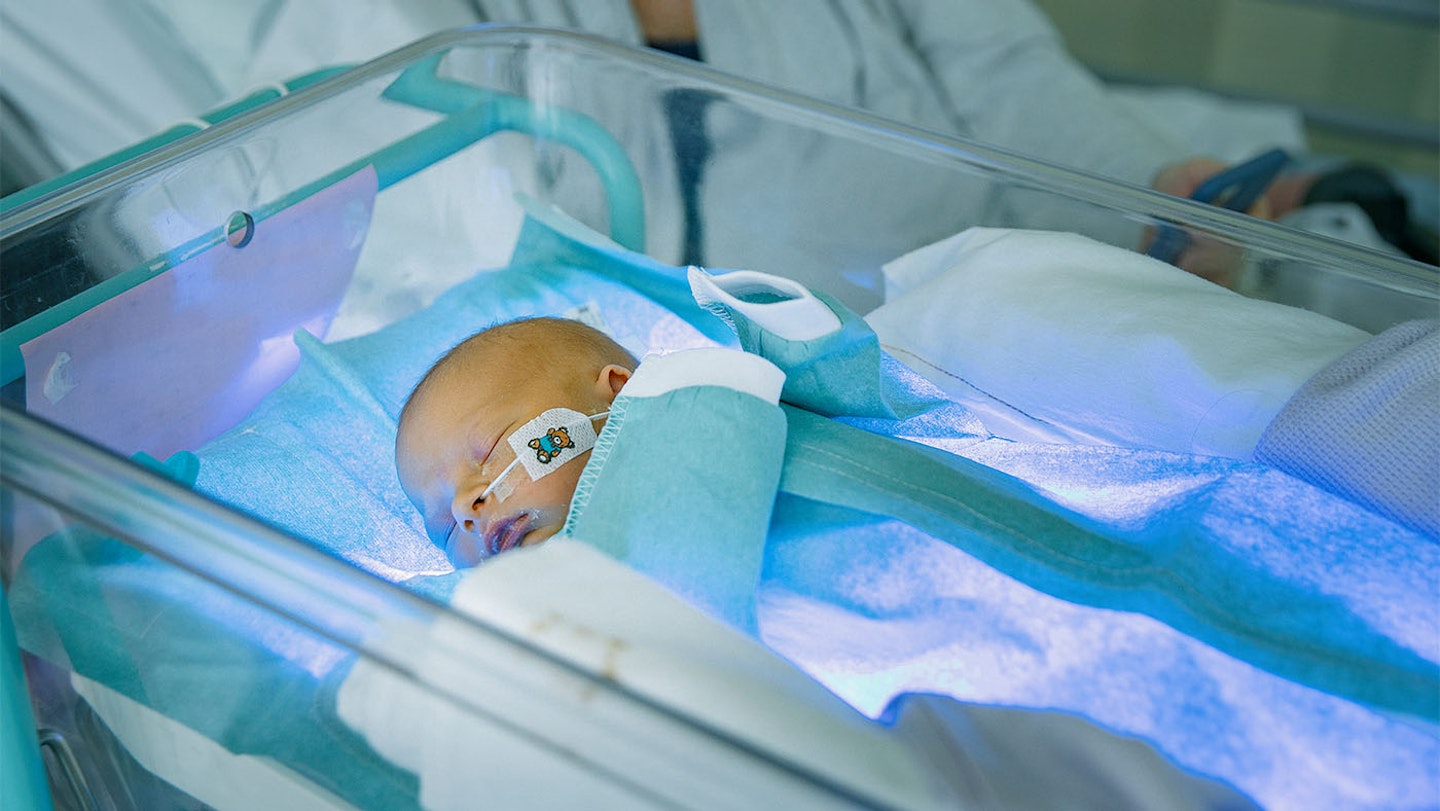If your beautiful baby is beginning to slightly resemble a Simpson, don’t panic. It probably just means that your little one has jaundice.
It doesn’t look pretty, but it’s really common in newborns and rarely needs medical assistance to heal itself.
We've put together everything you need to know about jaundice, from how long it lasts to why it makes your baby’s skin yellow and when you need to treat it.
What is jaundice?
Jaundice is usually harmless in babies and occurs because your baby’s blood has an excess of bilirubin – a yellow substance produced when red blood cells are broken down.
It’s really common in newborns with about two thirds of full-term babies developing it in their second or third day. This is because they have more red blood cells than adults and their livers don’t work quite as fast.
‘If it doesn’t get passed out of the body as faeces, it will cause the skin and the whites of a baby’s eyes to turn a yellow colour,’ explains Professor Mitch Blair, from the Royal College of Paediatrics and Child Health.
Babies who are born prematurely, experienced bruising during birth, have a blood type that’s different from yours and who are breastfed, are more prone to jaundice.
What are the symptoms?

The most recognisable sign of jaundice is a yellow tinge to your baby’s skin. For babies with brown or black skin, it can be trickier to see the change in skin colour but the yellowing may be more obvious elsewhere such as in the whites of their eyes, inside their mouth or on the soles of their feet or palms of their hand.
Keep an eye out for pale-coloured poo and dark yellow urine, both indicators that it’s slightly more serious than usual.
Your baby might also be struggling to gain weight, have trouble feeding and might be difficult to wake up.
How long does it last?
Fortunately, it doesn’t last long – it should go in about 14 days. But it can last for up to three weeks in premature and breastfed babies.
‘Only one in 10 babies will still have jaundice when they are one month old,’ says Professor Blair.
How do you treat jaundice?
Unless severe, jaundice is one of those baby conditions that will clear up by itself. You can nudge the process along by making sure you feed your bub often, which will help the bilirubin come out in his nappy.
‘If you are breastfeeding, you should continue to breastfeed your baby regularly, waking them up for feeds if necessary,’ advises Professor Blair.
When to see a doctor
It’s rare that your baby will need medical help, however, there are a few instances in which it’s best to see a doctor.
‘If the jaundice stays for over two weeks then it’s worth getting it checked out,’ says Professor Blair. ‘Also take your baby to the doctor if it didn’t start until seven days after your baby was born or if your baby’s faeces are chalky white in colour.’
More often than not jaundice is a completely ordinary baby illness – it’s all part of your little one adjusting to life outside the womb and learning to look after himself.
Just keep an eye on him and don’t let it stop you from enjoying those precious first weeks.
